
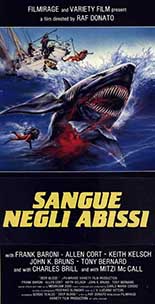 Four boys who look they slam pogs at recess are sitting on the beach, wieners in hand. Unprovoked, an old Indian shaman shambles over and starts rambling about warriors in the sky, which isn’t weird at all, and tells them to make a blood pact. Whipping out their respective pocketknives, they do. Kids, welcome to the world of pediatric AIDS!
Four boys who look they slam pogs at recess are sitting on the beach, wieners in hand. Unprovoked, an old Indian shaman shambles over and starts rambling about warriors in the sky, which isn’t weird at all, and tells them to make a blood pact. Whipping out their respective pocketknives, they do. Kids, welcome to the world of pediatric AIDS!
Er, I mean Deep Blood. Welcome to the world of Joe D’Amato’s Deep Blood.
Years later, those four boys are four young men, each with their own problems. One is grieving a dead mom. One has to attend a military academy. One attends college, but just wants to golf. One is named Miki. One has a dad named Shelby. I may have mixed them all up, which is only natural, seeing how D’Amato (Emanuelle in America) rushes into things. It doesn’t help that each man acts with the verve of a pre-fairy Pinocchio, but it also doesn’t matter. Besides, one of them succumbs to a shark on the loose comparatively early in the film, which leaves us only three people to discern.
The first shark attack is the best, as a rafting woman is eaten while her little kid watches emotionless from the shore, as if Mom were doing something as benign as cutting the crusts from his PBJ. It’s not that her death is depicted realistically; quite the opposite, it looks as if D’Amato just had someone underwater open a jar of Ragu. Here, as throughout Deep Blood whenever shot from the shark’s POV, we can clearly make out the side of the swimming pool in which D’Amato filmed in broad daylight.
The actual shark content of Deep Blood is rather shallow, especially when so much of its stock footage comes pilfered from another Italian Jaws rip-off, Great White. Like that 1981 romp, this one includes a helicopter scene, too, but here the whirlybird is employed only to let the ever-perspiring Krupke-esque sheriff (Tody Bernard, Hologram Man) berate our protagonists via megaphone for going shark-hunting: “Get back to the harbor immediately. We know what you’re up to. Shelby, you should be ashamed of yourself.”
Same goes for you, Joe! This is one of Italy’s shakiest sharksploitation efforts — and that’s saying something. —Rod Lott

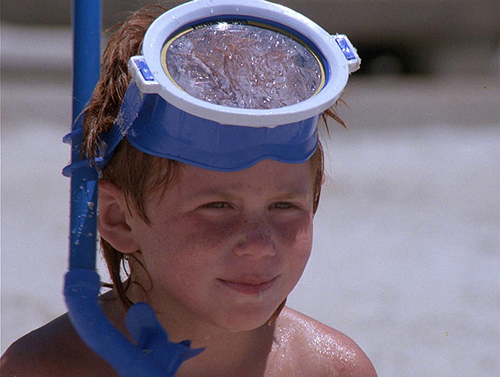
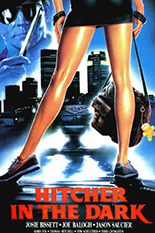
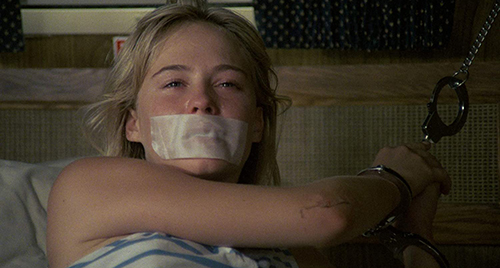
 In
In 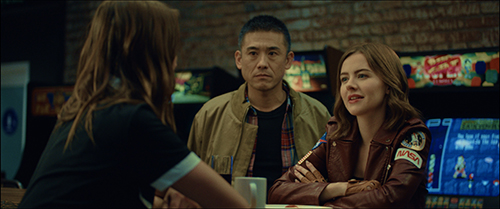
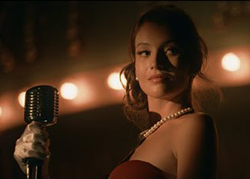 Cara: “I like you.”
Cara: “I like you.”


